As a bird owner, you may face the risk of a common and severe disease called coccidiosis in pigeons. Coccidiosis, also known as intestinal coccidiosis or coccidiasis, is caused by a tiny parasite from the Eimeriidae family.
Coccidiosis is caused by a microscopic parasite called coccidia, which spreads through infected bird droppings. In simpler terms, if you find even a small amount of bird poop in your water container, feeder, or bedding, chances are there is coccidia present.
What are the Symptoms of Coccidiosis ?
Symptoms of coccidiosis primarily affect the digestive system. Additionally, coccidiosis can manifest through various signs, such as weight loss, paleness, ruffled feathers, depression, huddling, reluctance to eat, and diarrhea, which may appear watery, bloody, or contain greenish mucus. It’s important to note that all birds are susceptible to this condition, but growing birds and young adults aged 3 to 5 weeks old appear to be particularly vulnerable.
- Diarrhea: Birds affected by coccidiosis may experience watery or bloody diarrhea.
- Weight loss: Infected birds may lose weight due to reduced appetite and nutrient absorption.
- Weakness and lethargy: The parasite can drain the bird’s energy, leading to weakness and reduced activity levels.
- Poor feather condition: Birds with coccidiosis may have dull, disheveled feathers.
- Dehydration: Severe diarrhea can cause dehydration in affected birds.
- Decreased egg production: In laying hens, coccidiosis can lead to a decline in egg production.
- Increased mortality: In severe cases, coccidiosis can be fatal, especially in young or immunocompromised birds.

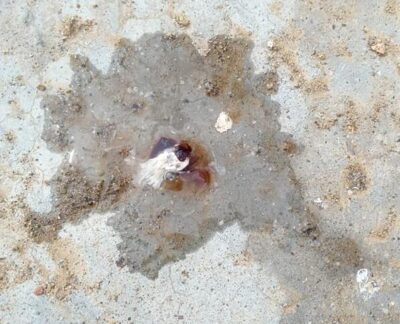
How to Prevent Coccidiosis in Pigeons ?
To prevent coccidiosis disease in birds, there are several measures you can take:
- Cleanliness and hygiene: Maintain a clean and dry environment for your birds. Regularly remove droppings from cages, roosts, and feeding areas, as coccidia can be transmitted through infected feces.
- Disinfection: Use appropriate disinfectants to clean and sanitize the coop, cages, and equipment. This helps kill any potential coccidia present in the environment.
- Separation of age groups: Avoid mixing birds of different ages, especially young and adult birds. Young birds are more susceptible to coccidiosis, so isolating them can help reduce the spread of the parasite.
- Good nutrition: Provide a well-balanced diet for your birds that includes high-quality feed, vitamins, minerals, and fresh water. A healthy immune system can help birds resist coccidiosis.
- Adequate spacing: Avoid overcrowding in the coop or cages, as stress and overcrowding can increase the risk of coccidiosis transmission.
- Regular veterinary check-ups: Have your birds examined by a veterinarian regularly. Early detection and prompt treatment of any health issues can help prevent the spread of coccidiosis.
- Coccidia hate sunlight. It’s a natural disinfectant. Incorporate as much natural sunlight into your brooder as possible.
Remember, prevention is key in managing coccidiosis, so implementing these preventive measures can significantly reduce the risk to your birds. If you suspect coccidiosis or notice any symptoms, consult a veterinarian for accurate diagnosis and treatment options.
Treatment of Coccidiosis in Pigeons
Vitamin supplementation: It’s crucial to provide birds with appropriate vitamins, particularly vitamins A and B. These vitamins should be included in the diet of all birds in the infected loft. Vitamin supplementation can support the bird’s immune system and overall health.
Hygiene practices: Strict hygiene conditions play a pivotal role in preventing coccidiosis spread. Regular cleaning and disinfection of the loft, cages, and equipment are essential. This helps eliminate coccidia and other potential pathogens from the environment.
Use of disinfectants: In addition to establishing good hygiene practices, the use of suitable disinfectants is vital. Disinfectants can effectively kill coccidia and reduce the risk of contamination.
Medication: If birds become infected with coccidiosis, specific treatments can help address the issue. Medications such as Toltrazuril, Sulphonamides, or Clorazil are commonly used to treat infected birds. These medications target the coccidia parasite and assist in eliminating the infection.
Effective coccidia control: Certain medications like Diclazuril and Toltrazuril are highly effective against a wide range of coccidia species. These medications can efficiently control and reduce the prevalence of coccidia in bird populations.
By incorporating these strategies and addressing the specific needs of coccidiosis prevention and treatment, bird owners can significantly reduce the risk of coccidiosis in their flocks. Consulting with a veterinarian can provide further guidance on the appropriate use of vitamins, disinfectants, and medications for coccidiosis prevention and control.
Moreover you can found many treatments for coccidiosis at veterinary shops including the 3 in 1 or 4 in 1 solutions to treat (canker, coccidiosis, deworming and e.coli)
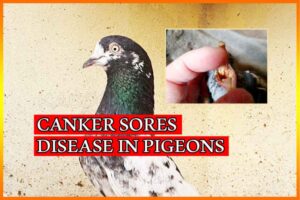


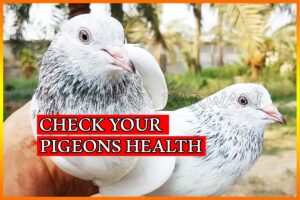
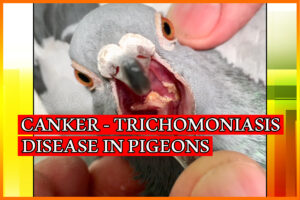
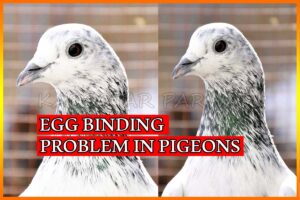


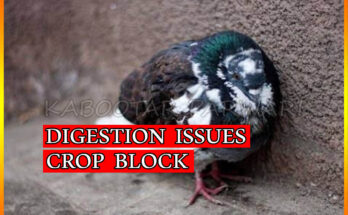
One Comment on “Coccidiosis In Pigeons – How To Treat Cocci Disease”